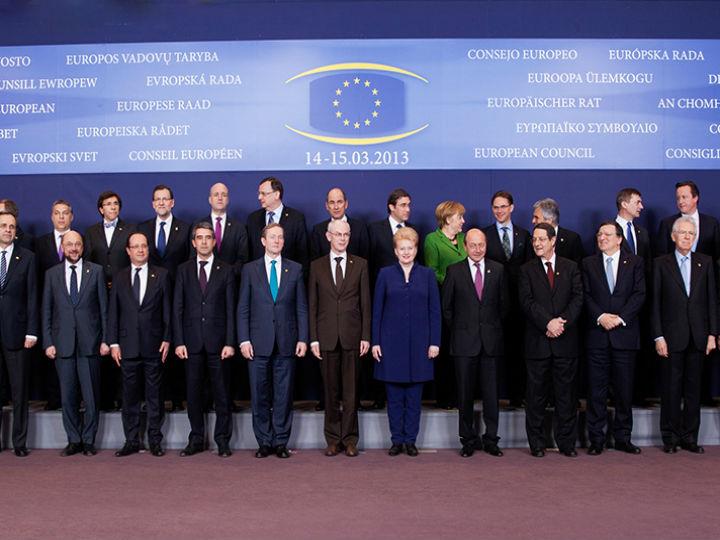by Giles Merritt*
When EU heads of government meet at European Councils, do they concentrate on what really matters? Summits have always been feast or famine – sometimes achieving a great deal, and at others ending in an embarrassing bust-up. These days they look increasingly dysfunctional.
EU summits focus far too much on short-term policy issues instead of on strategies to cope with the hugely disruptive threats on the horizon. The EU needs to take another look at how officials set the European Council’s agenda, and at ways to beef up the authority and responsibilities of ‘Europe ministers’.
Too often EU leaders find themselves discussing problems that should have been tackled at ministerial level. Wolfgang Schussel, who was Austria’s Chancellor for seven years, once complained to me that comparatively minor disputes are passed upwards not because they’re intractable but because they are politically toxic. Both humdrum and intractable policy questions thus occupy summit time that had been earmarked for long-term strategic decision-making.
The European Council should be coordinating member states’ responses to these common societal and industrial problems
Public perceptions of summits have also changed. In years past, the arrival in a European national capital of high-profile political leaders received massive media attention. Nowadays, the practicality of holding most meetings in Brussels, and the proliferation of ‘special’ and ’emergency’ summits, has robbed these meetings of dramatic impact.
A case in point is the recent convening of EU leaders to negotiate the Union’s 2021-27 budget. It was widely predicted that there would be no breakthrough, and the summit’s collapse attracted no more than the muted criticism of any failed ministerial council. As Shada Islam pointed out in last week’s ‘Frankly Speaking’, the summit was downgraded to the status of an EU ritual. Everyone knew that sooner or later a budget deal would be cobbled together.
The structural shifts now under way in the European political economy will seriously affect people’s living standards and security. As well as determining EU policies, the European Council should be coordinating member states’ responses to these common societal and industrial problems.
Agreeing to disagree over security challenges like Syria and Libya simply isn’t good enough
No one would dispute member states’ national sovereignty in domestic affairs, but they need a shared approach when adapting to ageing and the rise of robotics and artificial intelligence (AI). With more immigration an undeniable reality, EU leaders must also create consensus on preparing for a much more multiethnic and multicultural Europe. Unless these pressures are recognised and confronted they will seriously undermine the EU’s already fragile solidarity.
The European Council must also improve its foreign policy performance. Agreeing to disagree over security challenges like Syria and Libya simply isn’t good enough; EU leaders must hammer out common stances on hotspots in the Middle East and Africa before they erupt.
Commission president Ursula von der Leyen’s announcement of a “geopolitical EU” may mark a turning point. It is to be hoped the coming five years will see a move away from the navel gazing that has so far characterised 21st-century Europe. Enlargement led the EU to highlight internal rather than external policies, but the world is now a very different place.
The dream of “ever-closer union” is fading in the face of indecision
The speed of global change and the snail’s pace of EU reform contrast starkly. The dream of “ever-closer union” is fading in the face of indecision and outright disagreement over ways to promote economic convergence. Yet the global environment is tougher than ever, with security threats more menacing. These developments are, however, not properly reflected in summit communiques.
An idea worth considering is to substantially upgrade ‘Europe ministers’ from their present somewhat junior roles and make them more akin to deputy prime ministers. Meeting as a super-Council of Ministers, with oversight on foreign and financial issues, this would clear the decks for European Council summits to focus on the future.
*Founder and Chairman, Friends of Europe
**first published in: www.friendsofeurope.org




 By: N. Peter Kramer
By: N. Peter Kramer

